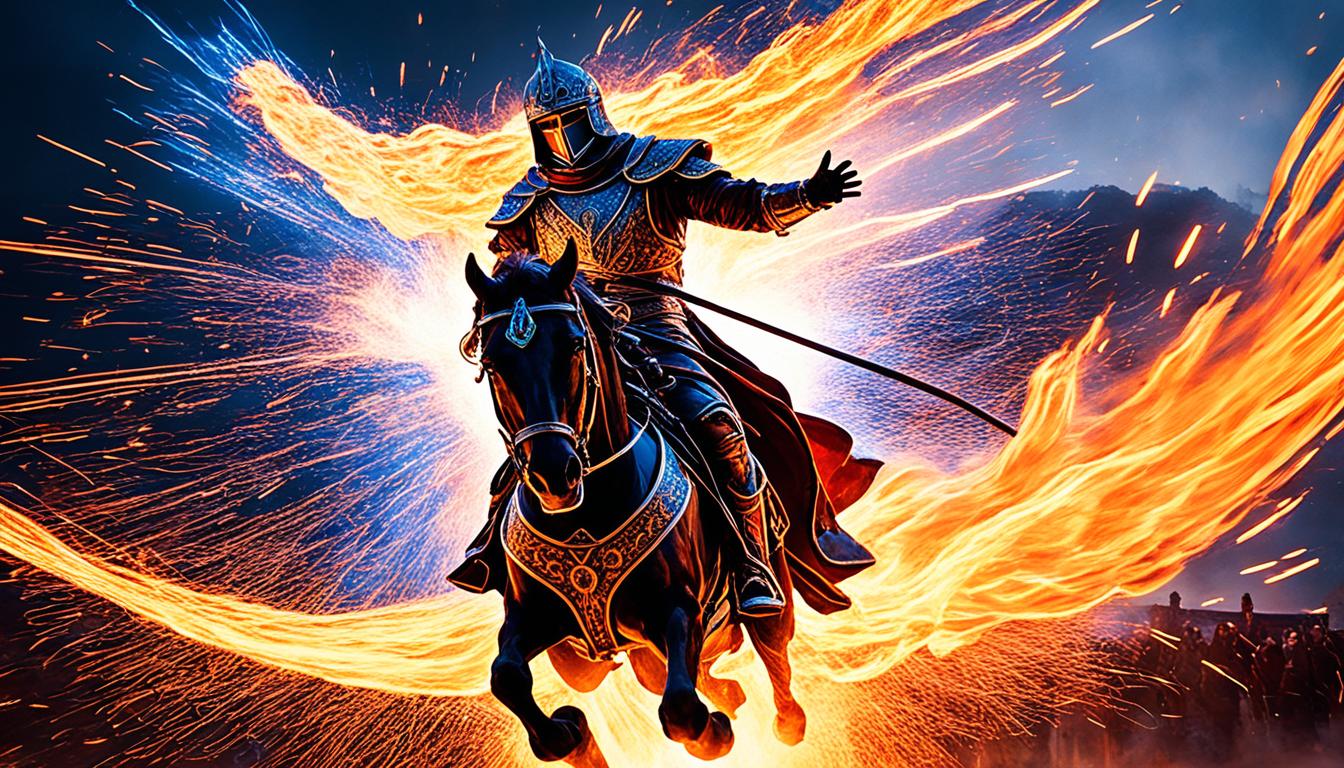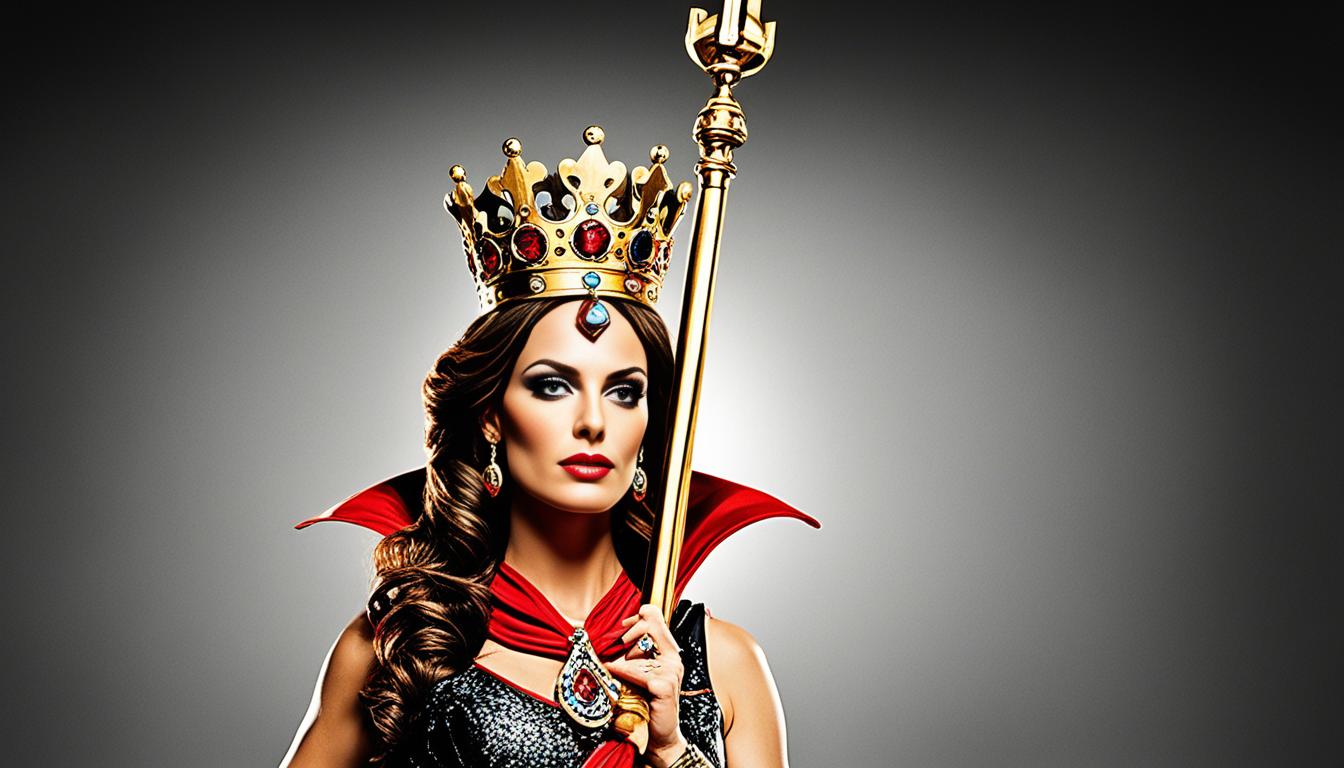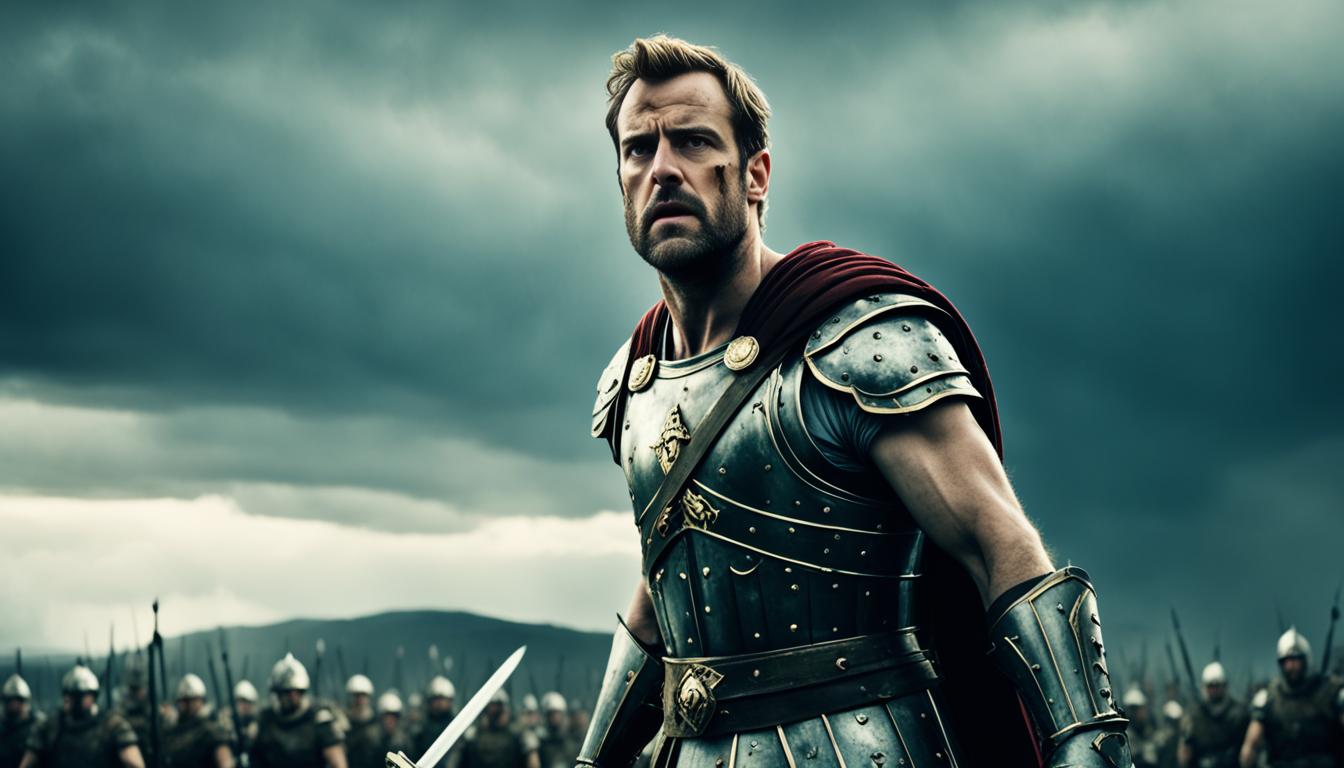King Ahab, a biblical figure mentioned in the Old Testament, holds a significant place in Israel’s history. Known as one of the most wicked kings, Ahab’s actions and choices had far-reaching consequences. This article aims to provide insights into the life of King Ahab, his relationship with notable figures like Elijah and Jezebel, and the repercussions of his disobedience.
Key Takeaways:
- King Ahab was a wicked king in Israel’s history.
- Ahab’s marriage to Jezebel led him astray and promoted idolatrous worship.
- Elijah, a prophet, confronted Ahab, warning him of divine judgment.
- Ahab’s wickedness and disobedience caused a three-and-a-half-year famine.
- Ahab’s downfall was ultimately fulfilled through his death in battle.
The Evil of King Ahab
King Ahab’s reign was characterized by his extreme wickedness, surpassing that of any previous kings in Israel’s history. He not only continued the idolatrous practices initiated by Jeroboam but also actively encouraged others to partake in the worship of false gods. However, Ahab’s descent into darkness was further amplified by his ill-fated marriage to Jezebel, a powerful and manipulative woman who led him deeper into the abyss of idolatry and immorality.
Jezebel’s influence over Ahab was profound. She not only further corrupted his already wayward heart and mind but also orchestrated the murder of Naboth, an innocent man, in her quest for power and possessions. Ahab’s wickedness knew no bounds as he shamelessly pursued his selfish desires, heedless of the consequences and deaf to the warnings of prophets sent by God, including the renowned Elijah.
“For there was none like Ahab who sold himself to work wickedness in the sight of the Lord, because Jezebel his wife stirred him up. And he behaved very abominably in going after idols!” (1 Kings 21:25-26)
Ahab’s defiance of the Lord’s commands and his relentless promotion of idolatry ultimately led to his tragic downfall. Despite the numerous opportunities for repentance, Ahab remained stubbornly unyielding, persisting in his disobedience until his demise. His wickedness not only affected his own life but also inflicted immeasurable harm upon the nation of Israel, leaving a dark legacy of moral corruption and spiritual decay.
Ahab’s Wickedness
Throughout his reign, Ahab consistently defied the laws of God, willingly and enthusiastically embracing the false worship of Baal and Asherah. His disregard for divine guidance and his active role in leading others astray engendered a climate of spiritual decay within the kingdom of Israel. Moreover, Ahab’s insatiable hunger for power, wealth, and control drove him to commit heinous acts of injustice, such as the murder of Naboth, solely for personal gain.
Prophets against King Ahab
Ahab’s wickedness did not go unchallenged. Prophets like Elijah boldly confronted the wayward king, warning him of the dire consequences that awaited him if he refused to repent. Elijah’s unwavering faithfulness to God and his relentless pursuit of truth exposed Ahab’s depravity and idolatrous tendencies. However, despite witnessing miraculous displays of God’s power through Elijah’s ministry, Ahab remained unyielding in his defiance, choosing to reject divine mercy and continue his path of wickedness.
Image:
Ahab’s Conflict with Elijah
Elijah, a prophet of the Lord, played a significant role in the life of King Ahab. From their very first encounter, Ahab viewed Elijah as a troublemaker and blamed him for bringing trouble upon Israel.
Elijah’s primary mission was to confront Ahab and expose the falsehood of the worship of Baal. He challenged the prophets of Baal to a showdown on Mount Carmel, where God’s power was displayed in a miraculous way, proving that He alone is the true God.
Elijah’s challenge to the prophets of Baal on Mount Carmel:
“How long will you waver between two opinions? If the Lord is God, follow him; but if Baal is God, follow him.”
Despite witnessing this undeniable demonstration of God’s power, Ahab continued in his wickedness and refused to repent. He persistently rejected Elijah’s message and the opportunity to turn back to the Lord.

Mount Carmel: The Showdown
On Mount Carmel, Elijah and the prophets of Baal participated in a dramatic contest to determine the true God. Elijah challenged the prophets of Baal to call upon their deity to light a sacrificial fire, while he would do the same for the Lord.
Elijah’s words to the prophets of Baal:
“You call on the name of your god, and I will call on the name of the Lord. The god who answers by setting fire to the wood is the true God.”
The prophets of Baal cried out, performed rituals, and even cut themselves, but no fire came. In contrast, when Elijah prayed to the Lord, fire immediately consumed the offering, leaving no doubt about the power and faithfulness of the one true God.
This powerful event should have convinced Ahab to turn his heart back to the Lord, but his stubbornness and refusal to change his wicked ways only intensified.
Despite Ahab’s ongoing conflict with Elijah and his resistance to God’s truth, the prophet remained steadfast in his mission to confront the wicked king and uphold the authority of the Lord.
Ahab’s Influences and Surroundings
Ahab’s marriage to Jezebel played a significant role in shaping his life and reign as King of Israel. Jezebel, a powerful and influential woman, had a profound impact on Ahab’s beliefs and actions. Under Jezebel’s influence, Ahab was led further into the depths of idolatry and evil.
Jezebel not only encouraged Ahab’s wicked actions, but she also manipulated and schemed to attain her own desires. Her cunning and persuasive nature successfully swayed Ahab to follow her lead, disregarding the godly counsel of those around him.
Despite having positive influences in his life, such as Obadiah and other righteous individuals, Ahab chose to turn a blind eye to their advice and continued to embrace Jezebel’s ways. This decision to surround himself with negative influences ultimately contributed to his downfall.
| Influences | Effects |
|---|---|
| Jezebel | Led Ahab deeper into idolatry |
| Positive influences | Ignored their counsel and advice |
It is crucial to note that the consequences of Ahab’s marriage to Jezebel extended beyond his own life. Their partnership set a destructive precedent, influencing future generations and perpetuating their idolatrous practices.

The Consequences of Ahab’s Actions
The reign of King Ahab in Israel was marked by disobedience, wickedness, and a disregard for the Lord’s commands. These actions had severe consequences that ultimately led to Ahab’s downfall and death. The prophet Elijah, a messenger of God, pronounced a judgment upon Ahab, declaring that his descendants would be wiped out, and he would meet a dishonorable death.
Ahab’s murder of an innocent man, Naboth, to seize his vineyard served as a tipping point in his judgment. This act of greed and injustice showcased the depths of his wickedness and further fueled God’s anger towards him. Despite Ahab’s temporary repentance and humility in response to Elijah’s prophecy, it only postponed the destruction of his dynasty until after his death.
As prophesied, Ahab met his end in battle. It was a tragic and fitting end for a king whose actions compromised the integrity of his reign and brought suffering upon the nation. Ahab’s downfall serves as a sobering reminder of the consequences that await those who choose to defy God and follow a path of wickedness and disobedience.
FAQ
Who was King Ahab in the Bible?
King Ahab was a ruler of Israel in the Old Testament. He is known for his extreme wickedness and disobedience to God’s commands.
What was Ahab’s relationship with Elijah?
Ahab and Elijah had a conflicted relationship. Elijah was a prophet who confronted Ahab about his idolatry and warned him of the consequences. However, Ahab remained unrepentant and continued in his wickedness.
Who was Jezebel, and how did she influence King Ahab?
Jezebel was Ahab’s wife and a powerful and manipulative woman. She led Ahab further into idolatry and orchestrated the murder of an innocent man. Her negative influence played a significant role in Ahab’s downfall.
What were the consequences of Ahab’s actions?
Ahab’s disobedience and wickedness led to a three-and-a-half-year famine in Israel. He also experienced the loss of his dynasty, as prophesied by Elijah. Ahab ultimately met his end in battle, fulfilling the prophecy.
What were some of the wicked actions that Ahab committed?
Ahab not only continued the idolatrous practices of his predecessors but also promoted the worship of false gods like Baal and Asherah. He also murdered an innocent man to take possession of his vineyard.







